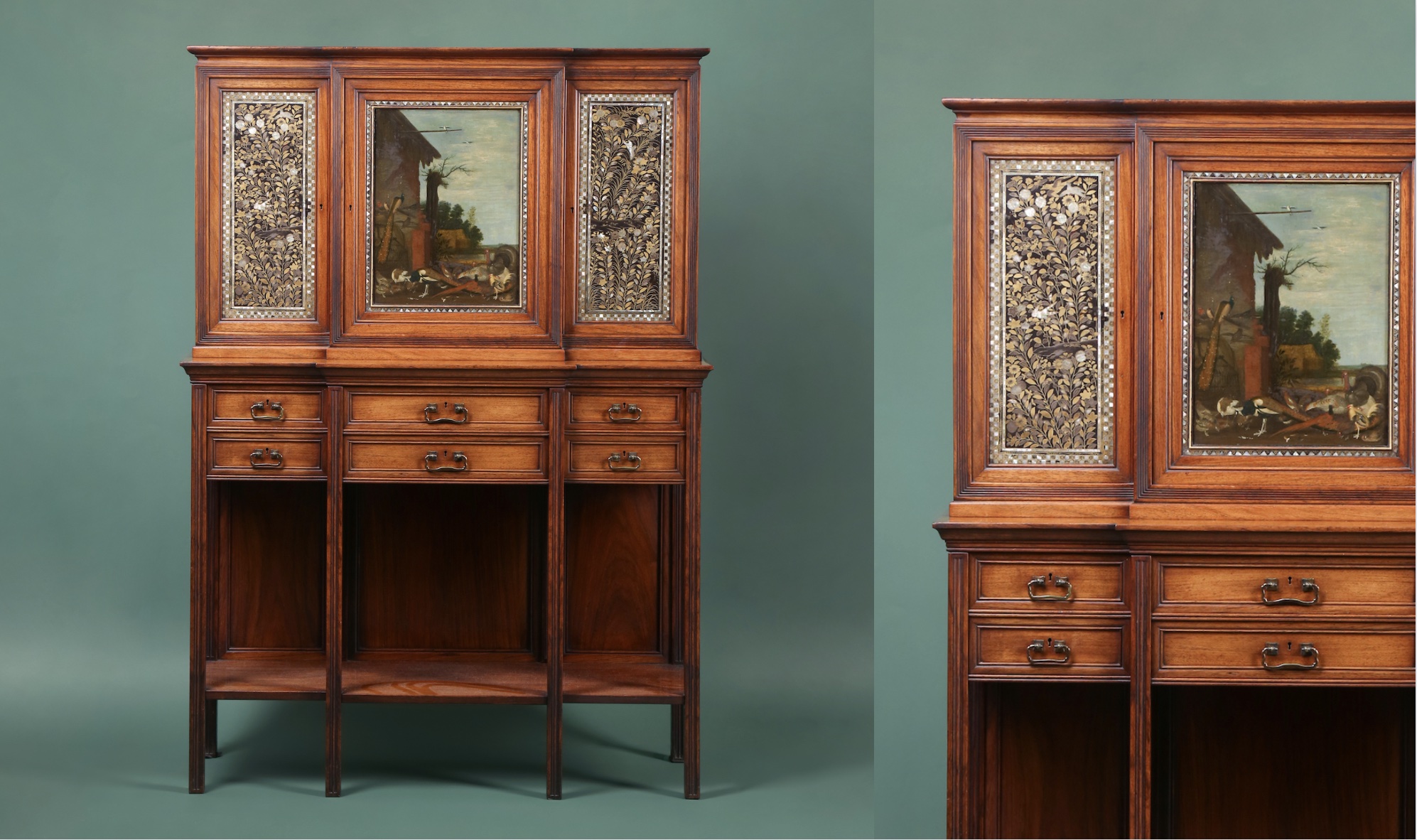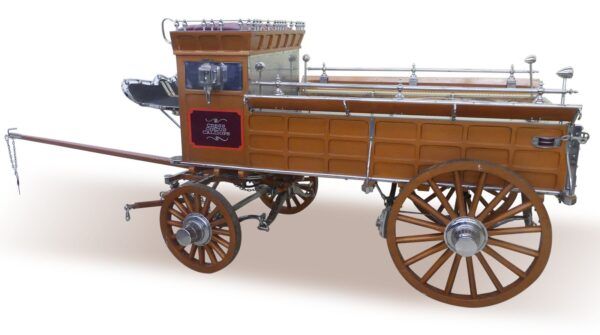#Rare #Aesthetic #Movement #cabinet #sale #Antique #Collecting
 A rare Aesthetic Movement cabinet combining Japanese lacquer panels and a Dutch Old Master comes for sale at Chiswick Auctions in London this autumn.
A rare Aesthetic Movement cabinet combining Japanese lacquer panels and a Dutch Old Master comes for sale at Chiswick Auctions in London this autumn.
Made c.1875, probably to a design by Thomas Jeckyll (1827-1881), it is expected to bring £40,000-£60,000 on November 7.
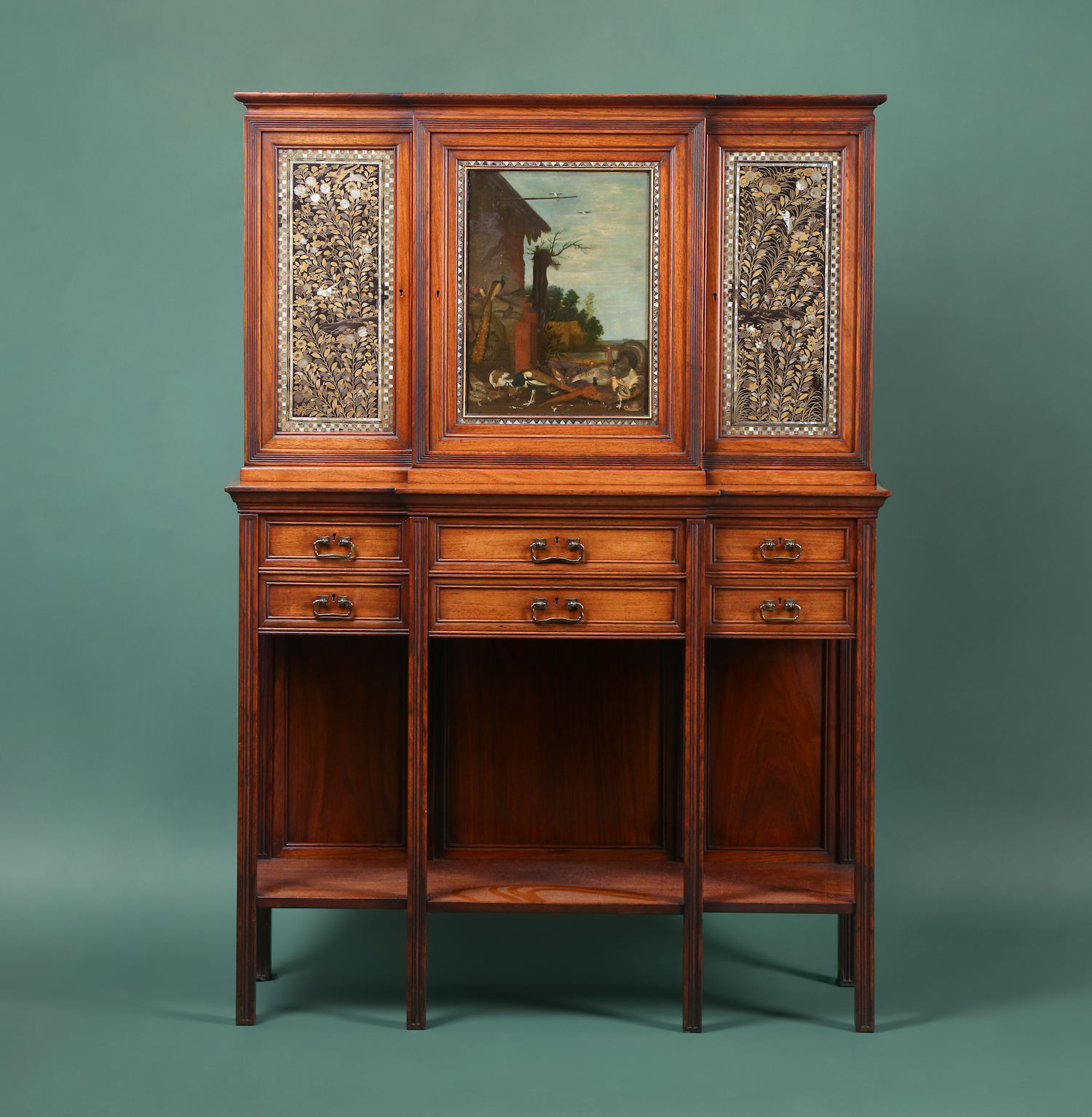
Although included in Chiswick’s Asian Art Part 2 sale, the cabinet is very much a cross-culture object of the Victorian period.
Mounted as doors within an English rosewood frame are four lacquer and mother-of-pearl panels (two in the side doors and two in the sides of the cabinet) of birds among stylised blossoms that date from the Momoyama period of Japan c.1600. Such panels (these probably once forming part of a religious shrine made for the Portuguese market) were known as nanban lacquer, a reference to the word the Japanese used for foreigners.
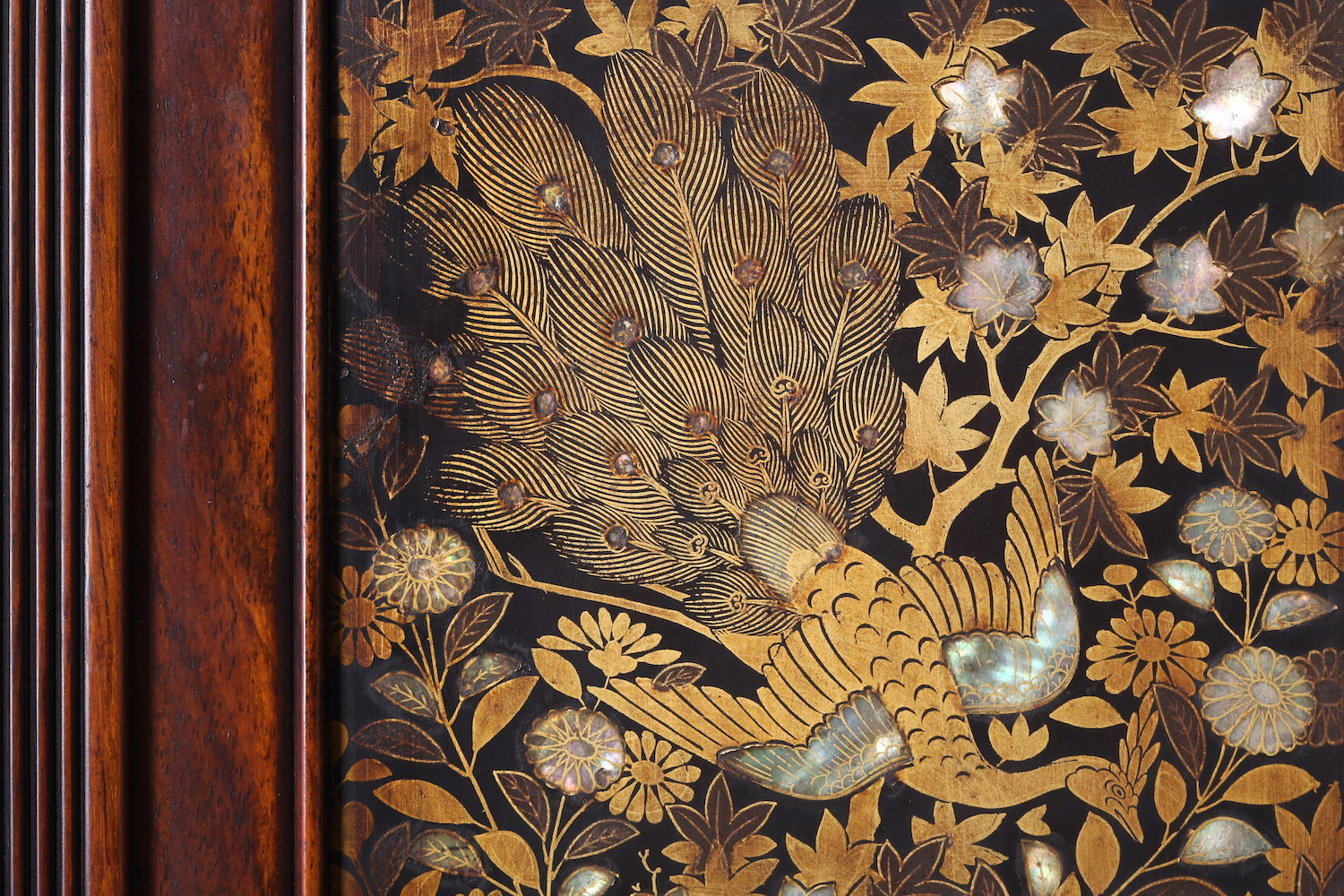
A third door is provided by a painting dated 1627 depicting exotic and domestic fowl in a rustic landscape signed for Pieter Holsteyn, an artist active in Haarlem who specialised in depicting birds. That the panel was not reduced to fit the cabinet door, suggests it was carefully chosen in terms of size and subject matter.
Furniture incorporating Japanese lacquer was not a 19th-century invention. However, this cabinet was created during the peak of the Japonism movement, prompted by the ‘opening-up’ of Japan during the Meiji period. It was possibly part of a larger design project. Jeckyll, the English architect best known for his planning in 1876 of the Peacock Room at 49 Princes Gate, produced similar furniture for Alexander Ionides (1810-1890) at 1 Holland Park.
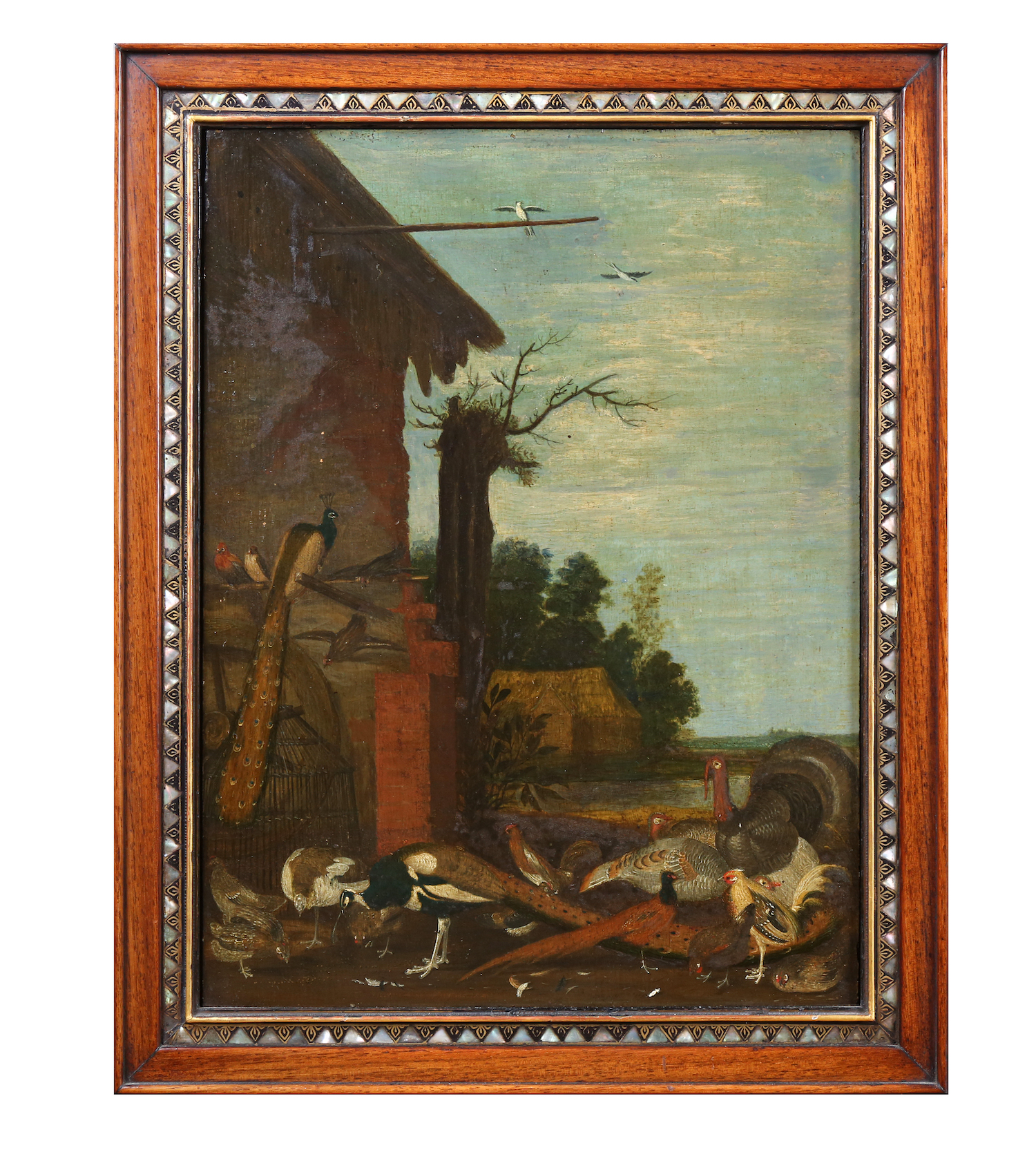
Although its early history is unknown, the piece was part of the exhibition Japan and Britain, An Aesthetic Dialogue, 1850-1930 that ran at the Barbican Art Gallery, London in 1992 and later at the Setagaya Art Museum Tokyo. In 2007, it was acquired by Andrew McIntosh Patrick (b. 1934), former director of the Fine Art Society and housed first in his flat above the Fine Art Society and later at his Georgian property in Charing Cross.

